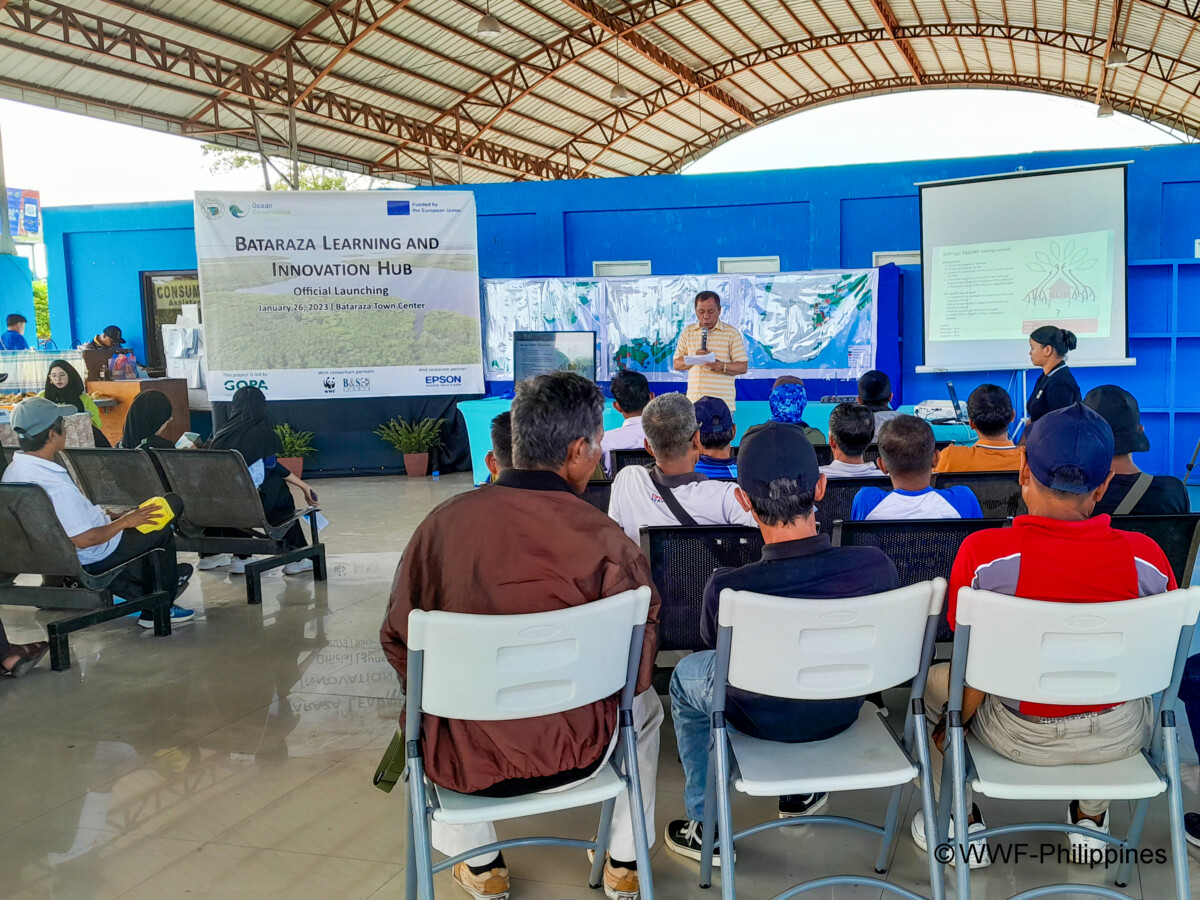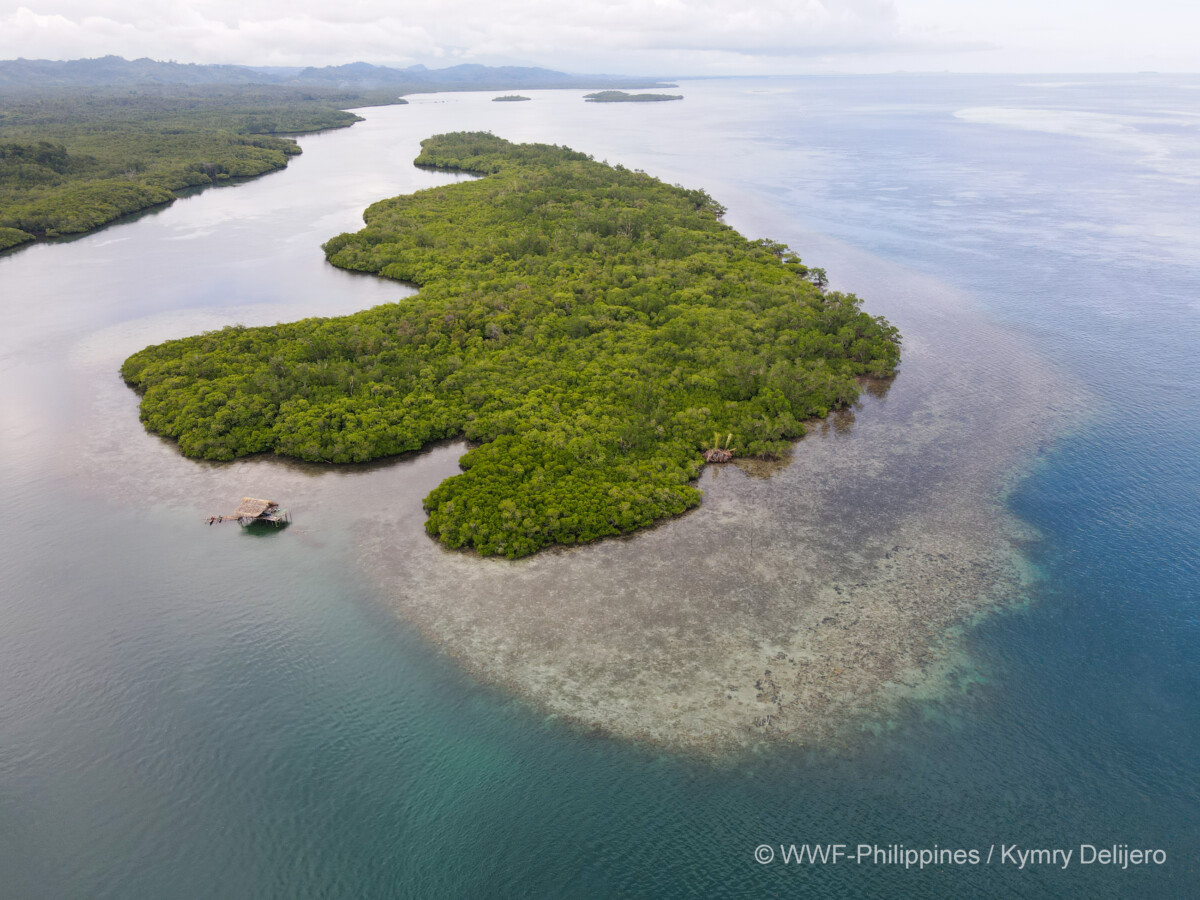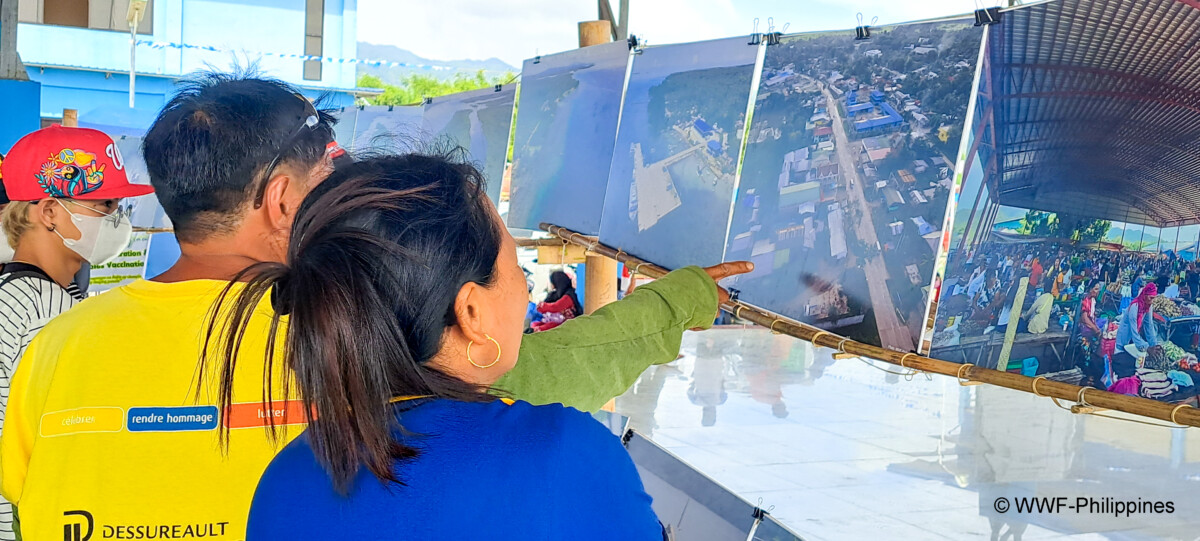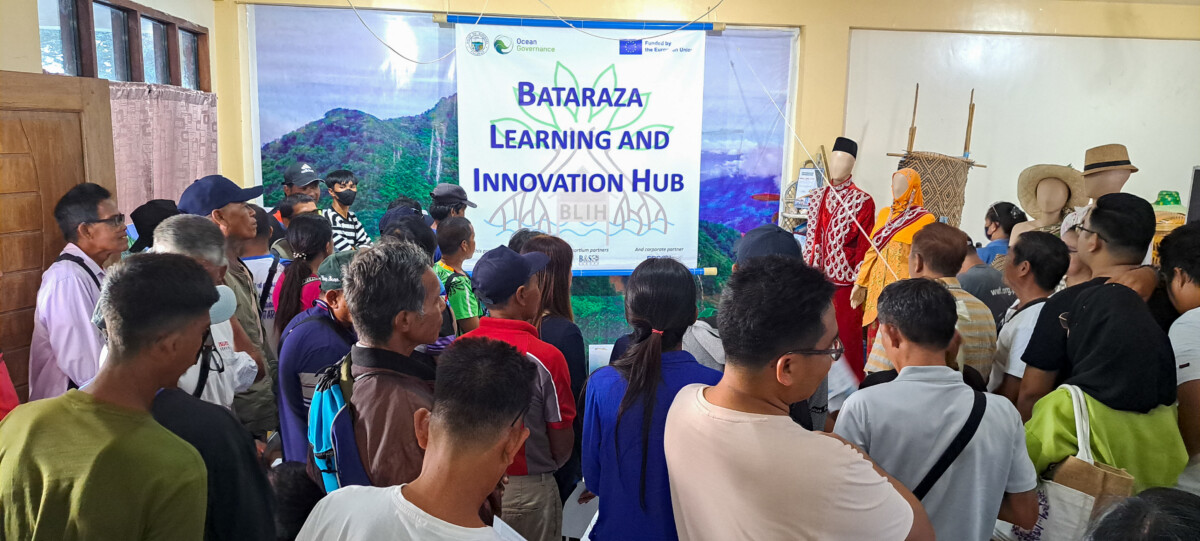
The Bataraza Learning and Innovation Hub’s formal launching program on January 26, 2023 aims to empower local communities in coming up with environmental solutions by providing a space for learning and knowledge-sharing. Photo: WWF-Philippines
Building a stronger and more climate-resilient future for communities in Palawan through mangroves
A new learning and innovation hub in the town of Bataraza, Palawan will soon be leading the way in coming up with solutions to environmental problems and concerns that have been affecting a wide area of Southeast Asia’s marine ecosystems.
The Bataraza Learning and Innovation Hub (BLIH) is a part of the European Union Ocean Governance, in collaboration with the Local Government of Bataraza, co-funded with EPSON, under its Public-Private-Partnership component. This project paves the way for the establishment of learning networks for the local community and will empower them to create solutions that solve problems affecting the local ecosystem.
“Because Palawan and a large part of the Philippine archipelago are part of the Sulu-Sulawesi Marine Ecoregion, the health of the local ecosystem can have a ripple effect on our neighboring Southeast Asian countries of Malaysia and Indonesia,” said Joan Pecson, project manager of the EU Ocean Governance project in the Philippines.
“Bringing together international organizations, business groups, the academe, civil society organizations, national and local government units, and community members to collaborate on solutions for environmental concerns is a win-win for everyone including nature,” she added.
In his message at the launching of BLIH on January 26, Municipal Councilor Gomer Miano reiterated the importance of mangroves in Bataraza which serves as “our shield against tidal waves that may destroy coastal communities and bring floods. Mangroves play a vital role in carbon sequestration, keeping our atmosphere clean.”
Miano expressed appreciation for the project’s science-based approach in mangrove restoration ensuring better survival rates. “In our past experiences, we only wasted time, effort and resources because of low survival due to the lack of proper knowledge and skills in mangrove planting.”
The town of Bataraza, approximately 3-4 hours southwest of the provincial capital of Puerto Princesa, is one of two key priority areas identified by WWF-Philippines for restoration of marine habitats within the Sulu-Sulawesi Marine Ecoregion. The other area is the municipality of Balabac south of Bataraza and near the border of Sabah, Malaysia.
In addition to the learning hub, both Balabac and Bataraza are project sites for mangrove planting, assessment and monitoring, capacity building for coastal and marine resource management, development of biodiversity friendly enterprise, and more. LGUs, local communities, and stakeholders will give their contributions and suggestions on what other activities should be done through consultations and dialogues.
Mangroves are globally-recognized as important ecosystems for terrestrial and marine life because these are habitats for many species of flora and fauna. They are also important carbon sinks with the ability to absorb 3-4 times more carbon dioxide than land forests. Unfortunately, 60-80% of mangrove resources in the Philippines have already been lost.
The Philippines’ rich biodiversity contributes greatly to major ecosystems such as the Coral Triangle and the Sulu-Sulawesi Marine Ecoregion. More than 500 species of reef-building corals, 2,500 species of marine fish, 5 species of sea turtles, and at least 22 species of marine mammals have been recorded in the Sulu-Sulawesi Marine Ecoregion.
“The Philippines’ place at the center of the Coral Triangle shows how vital our archipelago is to the ecosystem of Southeast Asia which also sits in between the Indian and Pacific Oceans. To uplift and empower the communities that live here is to improve the health of a great part of the world’s biodiversity,” Pecson said.
WWF-Philippines Executive Director Katherine Custodio highlighted the breakthrough collaboration from different sectors in Bataraza saying this shows the resolve in addressing the climate emergency.
“WWF-Philippines is thankful for the support of EU-Ocean Governance, EPSON Southeast Asia, the local governments of Balabac, Bataraza, and Palawan for this project to create a hub that will serve as an evolving space for communities to bridge multiple layers of governance, promote community-centric solutions, and amplify the voice and role of coastal communities in becoming on-par with existing institutions in coastal resource management,” Custodio said.

Mangroves play an important role in addressing global warming because mangrove forests can absorb 3-4 times more carbon than land forests. They are also vital nesting sites for animals in land, sea, and air. Photo: Kymry Delijero/WWF-Philippines

A photo exhibit was unveiled during the launch of the Bataraza Learning and Innovation Hub showing the lively town of Bataraza. Photo: WWF-Philippines

Ceremonial unveiling of the Bataraza Learning and Innovation Hub at the Cultural Heritage Center. Photo: WWF-Philippines
About WWF:
The World Wide Fund for Nature Philippines is an environmental non-government organization committed to create an impact on biodiversity protection and to respond to the climate crisis -towards a safe and just recovery. WWF-Philippines works with a host of partners including national and local governments, to co-create inclusive, innovative and interdisciplinary solutions that emphasize the role of science in the service of life. WWF-Philippines' focus is on scaled solutions with our partners to match the enormity of the tasks required to address the urgent environmental challenges facing the present and next generations of Filipinos. Its mission is "to stop, and eventually reverse the accelerating degradation of the Philippine environment – to build a future where Filipinos live in harmony with nature."
For more information or media arrangements, please contact:
Ms. Chezka Guevarra
Assistant Manager for External Communications and Ambassador Programs
cguevarra@wwf.org.ph
+63 927 656 6436
